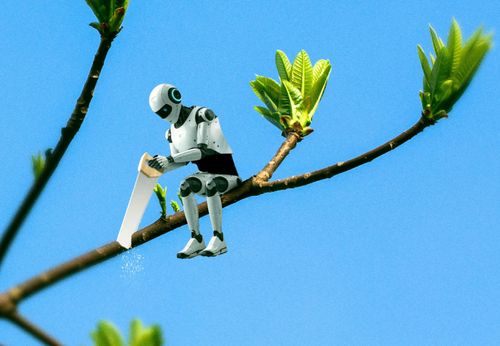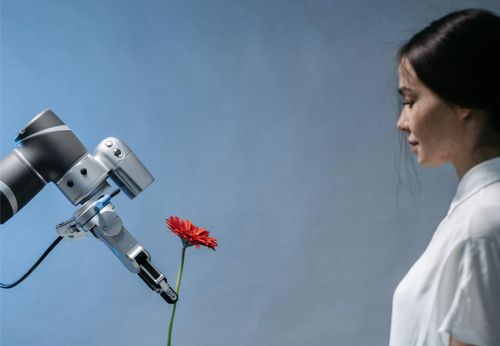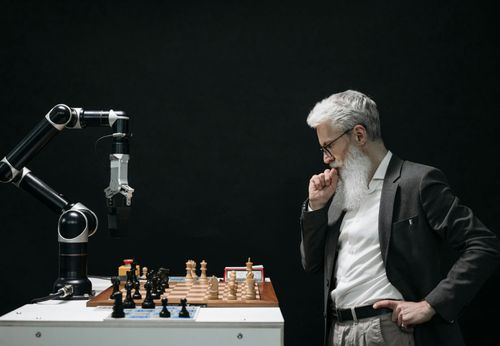We live in an extraordinary era—where technology holds the promise of longer, healthier, and more purpose-driven lives.
From AI-driven diagnostics to genomic testing and precision health apps, we’re not just tracking steps—we’re engineering health trajectories.
But here’s the paradox at the heart of modern longevity: The same tools designed to extend our lives may also be undermining our humanity.
The Promise: Tech as a Catalyst for Longevity
There’s no doubt that innovation is reshaping health and aging:
• Wearables like WHOOP or Oura track sleep, stress, and recovery with biomarker-level precision
• AI systems are outperforming doctors in diagnostics (e.g. DeepMind’s AlphaFold or Google Health’s mammography AI)
• Personalized health plans from platforms like InsideTracker or Zoe are redefining nutrition and biological feedback
As Peter Diamandis and Tony Robbins argue in Life Force (2022), we are entering an era of “exponential health”—where gene therapies, regenerative treatments, and diagnostics make it possible to live longer, stronger, and smarter. This is the upside: technology can be our greatest ally in the pursuit of vitality.
The Trap: Cognitive Decline by Design
But what happens when the same tools designed to enhance us start to diminish our core human faculties? Research is pointing out that:
• Cognitive offloading—outsourcing memory, planning, and problem-solving to apps—may impair long-term critical thinking (Ophir et al., 2009; Sparrow et al., 2011)
• Digital overload is fragmenting our attention spans; research by Dr. Gloria Mark (author of Attention Span, 2023) shows the average digital attention burst is now just 47 seconds
• Sedentary automation encourages passivity—from smart homes to food delivery, we’re moving less and engaging less bodily in everyday life
This is what technology ethicist Tristan Harris calls “the race to the bottom of the brainstem”—a contest for clicks that trains us to be reactive, anxious, and addicted.
As philosopher Luciano Floridi warns, we’re not just using digital tools—we’re undergoing re-ontologization, a transformation in what it means to be human.
The Dilemma: Who’s in Control?
So here’s the central question: Are we shaping technology—or is it shaping us?
This isn’t hypothetical. It’s existential. In a world where algorithms predict our behaviors, wearables monitor our biology, and platforms mediate our social connections, the answer depends on how consciously we engage.
Left unchecked, technology reduces us to data points, consumers, and inputs in feedback loops.
But when used with wisdom and design, it becomes a mirror for self-awareness and a tool for human-directed evolution.
The Solution: Become Co-Creators of Tech-Enabled Vitality
To thrive in the age of longevity, we must shift from passive users to conscious co-creators of our digital environments.
This requires a new kind of intelligence.
Not just IQ. Not even EQ. But what I call Longevity Intelligence™—the ability to align biology, technology, and purpose across a long and meaningful life.
It’s not about resisting technology—it’s about designing it for resilience, discernment, and deep humanity.
This means:
• Choosing apps that enhance awareness, not addiction
• Using AI to support learning and reflection, not offload all cognition
• Designing digital routines that optimize energy and recovery, not fragment attention
Frameworks like Longevity Intelligence help us ask not just: “What can technology do for me?”
…but: “What kind of human do I want to become with it?”
Closing Reflection
Technology is not the enemy. But it is a mirror—and sometimes a magnifier—of our unconscious habits.
To extend our healthspan and live wisely in the digital age, we must treat tech as both a tool and a terrain—a landscape we must design with intention, not drift through by default.
Because the real frontier isn’t just lifespan. It’s how we stay human—brilliantly, resiliently, and consciously—while living longer than ever before.



